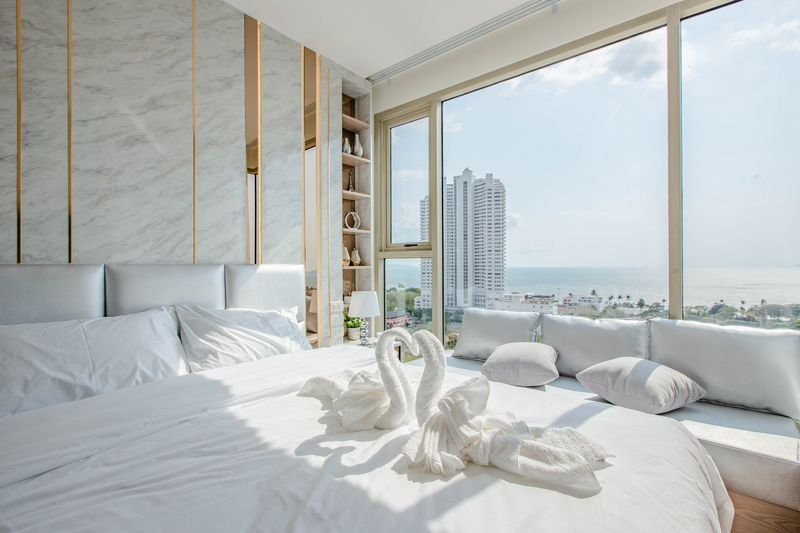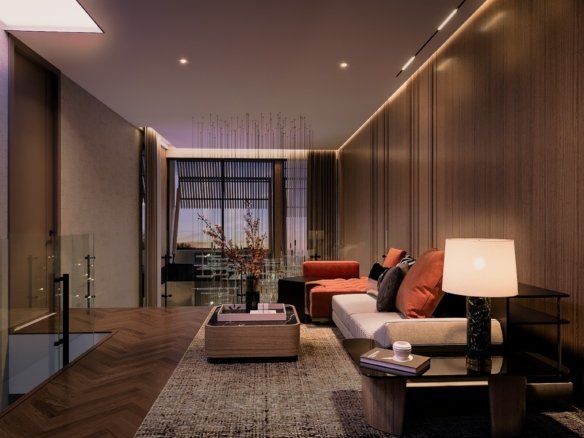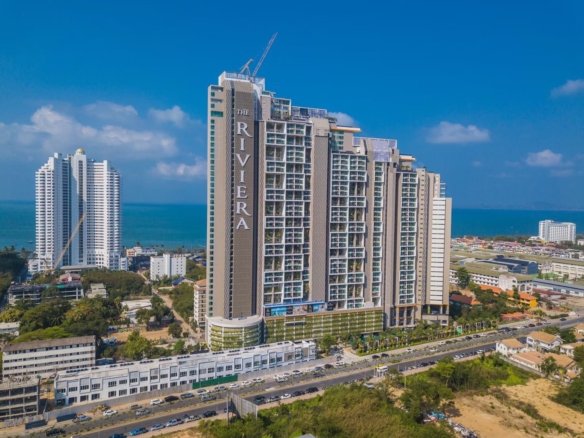Pattaya has emerged as a compelling hub for expats, retirees, and digital nomads alike. Beyond its famous nightlife, the city offers a vibrant international community, modern infrastructure, high-speed internet, and a remarkably affordable cost of living, especially when it comes to accommodation. For many, a condominium is the ideal choice for a long-term stay.
This guide provides essential tips to help expats and digital nomads navigate the Pattaya condo rental market efficiently and securely.
Why Choose a Condo for Long-Term Rent in Pattaya?
Condominiums are the go-to option for many long-term foreign residents due to several key advantages:
-
Amenities: Most condo buildings offer fantastic facilities like swimming pools, fitness centers, saunas, communal lounges, and often even co-working spaces – perfect for digital nomads.
-
Security: Condos typically have 24/7 security, CCTV, and keycard access, providing peace of mind.
-
Low Maintenance: Maintenance of the building’s exterior and common areas is handled by the building management (Juristic Person).
-
Location & Views: Many condos are strategically located near beaches, city centers, or offer stunning sea or city views.
-
Community: Many buildings foster an active expat community, making it easier to meet like-minded individuals.
Key Considerations for Expats and Digital Nomads
Your specific lifestyle needs will guide your search.
-
Internet Connectivity: This is paramount for digital nomads. Pattaya boasts excellent high-speed fiber internet options (TOT, True, 3BB, AIS), with average speeds around 80-180 Mbps download and costs typically ฿500-1,000 per month.
-
Location vs. Lifestyle:
-
Central Pattaya: For those who thrive on vibrancy, nightlife, shopping, and easy access to co-working cafes.
-
Jomtien Beach: Quieter, more relaxed, family-friendly, with long walking paths. Ideal for retirees or those preferring a slower pace.
-
Pratumnak Hill: Upscale, peaceful, green, and popular with long-term expats seeking tranquility while still being close to amenities.
-
East Pattaya: Offers more space and often houses/villas, but also some condos. Ideal if you have your own transport and prefer a suburban feel.
-
-
Furnishing Levels: Most rental condos in Pattaya come fully furnished, including essential furniture and appliances. Partially furnished or unfurnished units are less common but offer flexibility for personalization.
-
Building Amenities: Beyond the essentials (pool, gym), consider if laundry facilities are in-unit, shared in the building, or require external services. Some high-end condos offer concierge and cleaning services.
-
Pet Policies: If you have a furry friend, finding a pet-friendly condo in Pattaya can be challenging. Many buildings have strict no-pet policies. Be upfront with your agent about this need.
-
Transportation: While Pattaya has “Baht Buses” (songthaews) for shared rides, for East Pattaya especially, a motorbike or car is often necessary for convenience. Consider walking distance to amenities or public transport routes.
Finding Your Ideal Condo: Smart Strategies
-
Engage a Reputable Real Estate Agent (Highly Recommended):
-
Local Market Access: Agents have access to the widest range of listings, including off-market properties.
-
Negotiation: They can effectively negotiate rental terms and prices on your behalf.
-
Legal Guidance: Crucially, they understand Thai rental laws and can help review contracts, safeguarding your interests.
-
TM30 Awareness: A good agent will ensure your landlord understands and fulfills their TM30 reporting obligation (more on this below).
-
-
Online Property Portals & Expat Groups: These are good for initial research, but always verify listings and landlords through a professional. Expat Facebook groups can offer insights into specific buildings or areas.
-
Inspect Thoroughly: Always view the property in person. Check water pressure, hot water, air conditioning, appliance functionality, and overall security. Speak to existing tenants if possible.
The Leasing Process: Specific Tips for Expats & Digital Nomads
-
The Lease Agreement: Get it in Writing!
-
Bilingual Contract: Insist on a lease agreement in both Thai and English. While the Thai version will be legally definitive, the English version ensures you understand all terms.
-
Key Clauses: Pay close attention to:
-
Rent & Payment Schedule: Clearly defined.
-
Lease Term: Standard is 1 year. Longer terms (2-3 years) might offer better rates but are less flexible. Short-term rentals (under 6 months) offer less legal protection.
-
Security Deposit: Typically 1-2 months’ rent. Understand the conditions for its return (e.g., deductions for damages beyond normal wear and tear, unpaid utilities).
-
Maintenance & Repairs: Clearly define who is responsible for what (landlord for structural, tenant for minor wear & tear, who pays for AC servicing?).
-
Early Termination (Breakage Clause): If you might need to leave early, try to negotiate a “diplomatic clause” or a clear penalty for early termination. Without it, you risk losing your deposit and being liable for remaining rent.
-
Inventory List: This is CRITICAL. A detailed list of all furnishings and appliances. On move-in, meticulously check against this list and take extensive photos and videos of the property’s condition. This is your strongest evidence against deposit disputes at move-out.
-
-
-
Security Deposit: Be prepared to pay 1-2 months’ rent as a security deposit upfront, in addition to the first month’s rent.
-
TM30 Reporting: Your Visa Lifeline!
-
Landlord’s Responsibility: Under Thai Immigration law (Section 38), your landlord is legally obliged to report your stay to Immigration via a TM30 form within 24 hours of your arrival at their property.
-
Why it Matters to YOU: A correctly filed TM30 (and the receipt of notification) is often mandatory for foreigners when applying for visa extensions (e.g., Non-B, Retirement, Education visas), 90-day reports, or other immigration services.
-
What to Do: Insist that your landlord or agent provides you with the TM30 receipt. Keep a copy safe, ideally with your passport. If your landlord is unfamiliar or unwilling, this is a major red flag, as it can cause significant issues for your visa status. A reputable agent will facilitate this.
-
-
Utilities: Avoid Markups!
-
Clarify how utilities (electricity, water) are billed. Ideally, the meters should be in your name (or easily traceable to government rates), and you pay directly to the utility providers.
-
Some landlords might add a markup if they handle the billing directly. Get this confirmed in your contract. Average electricity can be ฿1,500-3,500/month, water is typically cheap (฿100-300), and internet ฿500-1,000.
-
Living in Your Pattaya Condo
-
Juristic Person: Get to know the condo’s Juristic Person (building management). They oversee common areas and can be a resource for building rules or issues.
-
Maintenance: Report any significant maintenance issues promptly to your landlord or agent.
-
Community: Participate in building activities or local expat groups to build connections.
Conclusion: Rent Smart, Live Well in Pattaya
Renting a condo in Pattaya as an expat or digital nomad offers an unparalleled blend of convenience, affordability, and vibrant living. By being proactive, understanding the local rental nuances (especially regarding the TM30 and contract clauses), and leveraging the expertise of a reputable local real estate agent, you can secure your perfect home and enjoy all that this dynamic city has to offer.
Ready to find your ideal long-term condo rental in Pattaya?
Contact Realestate-Pattaya.com today. Our team understands the unique needs of expats and digital nomads and is here to guide you to your new home.




Join The Discussion